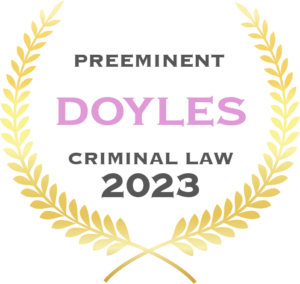Double Demerits for Anzac Weekend
Double demerits will be enforced in NSW for Anzac Day from Wednesday 24 April to Sunday 28 April 2024.
In New South Wales, the demerit point system operates as a cornerstone of the road safety campaign. It aims to deter unsafe driving behaviours and encourage compliance with traffic laws.
To further deter high-risk behaviours during periods with increased traffic, NSW enforces double demerit points in NSW during specific holiday periods such as Easter.
What Dates Do Double Demerit Points Apply?
Transport NSW have listed the upcoming double demerit periods for 2024 as:
- Christmas Day, Boxing Day and New Year’s Day – 22 December 2023 to 1 January 2024
- Australia Day – 25 January to 28 January 2024
- Easter – 28 March to 1 April 2024
- Anzac Day – 24 April to 28 April 2024
- King’s Birthday – 7 June to 10 June 2024
- Labour Day – 4 October to 7 October 2024
- Christmas Day, Boxing Day and New Year’s Day – 20 December 2024 to 1 January 2025
Duration and Timing of Double Demerit Periods
Double demerit periods typically align with NSW public holidays and significant events, when there is an increase in road use. These periods often start at midnight of the holiday’s commencement and conclude at 11:59 PM of the termination date.
What Offences Attract Double Demerit Points in NSW?
Double demerit points apply to the same range of traffic offences. They can have a significant impact on a driver’s licence status, with penalties doubling not only in terms of points but often in financial fines as well.
Each licence type has a specific demerit point threshold. Exceeding these limits can result in suspension or refusal notices. The thresholds vary, with unrestricted licence holders allowed up to 13 points, professional drivers 14 points, and provisional P2 licence holders 7 points. Double demerits applies to the following offences:
- Speeding: Offences include exceeding the speed limit, with penalties of up to eight demerit points. Your vehicle can be detected by a fixed speed camera, mobile speed camera or Police Officer.
- Seatbelts: It is the driver’s responsibility to ensure that all passengers in their vehicle are wearing a seatbelt. The fine for driving and not wearing a seatbelt is $349 and 3 demerit points and 6 demerit points if you get caught in the double demerit period.
- Mobile Phone Use: There are serious penalties for drivers caught using their phones illegally, including double demerit points and fines. The standard fine is $352, rising to $469 in school zones, underpinned by a loss of 5 demerit points. During double demerit periods, the demerit point penalty increases to 10 points for mobile phone offences. Enforcement is sophisticated, utilising Mobile Phone Detection Cameras, which can catch drivers engaging in illegal phone use.
Consequences of Accumulating Double Demerit Points
- Licence Suspension: An unrestricted licence holder can accumulate up to 13 points before a suspension. You can appeal a licence suspension, however it’s you will need to make an application to the local court.
- Impact on Record: Demerits can affect one’s driving record. This can possibly influence future legal outcomes and insurance premiums.
Facing a Traffic Offence?
Staying informed about the demerit points system is crucial for all drivers in NSW. If you have been caught during a double demerit long weekend get in contact with the team at Hamilton Janke Lawyers. We are highly experienced in traffic offences, and will do everything they can to ensure the best result possible for your case.
Key Takeaways
- Double demerit points apply in NSW during specified periods for speeding, illegal mobile phone use, not wearing a seatbelt, and riding without a helmet.
- The scheme aims to enhance road safety during high-traffic periods like public holidays.
- Penalties for these offenses double, intending to deter risky driving behaviors.
- Mobile phone use while driving, including holding the phone, incurs significant fines and demerit points, with specific rules for learner and provisional license holders.
- It's crucial for drivers and riders to comply with these regulations to avoid heavy penalties and contribute to road safety.
Written By

James Janke
James Janke is founding partner at Hamilton Janke Lawyers, and has more then decade of experience as a Criminal Defence Lawyer. Admitted to both the Supreme Court of New South Wales and High Court of Australia



